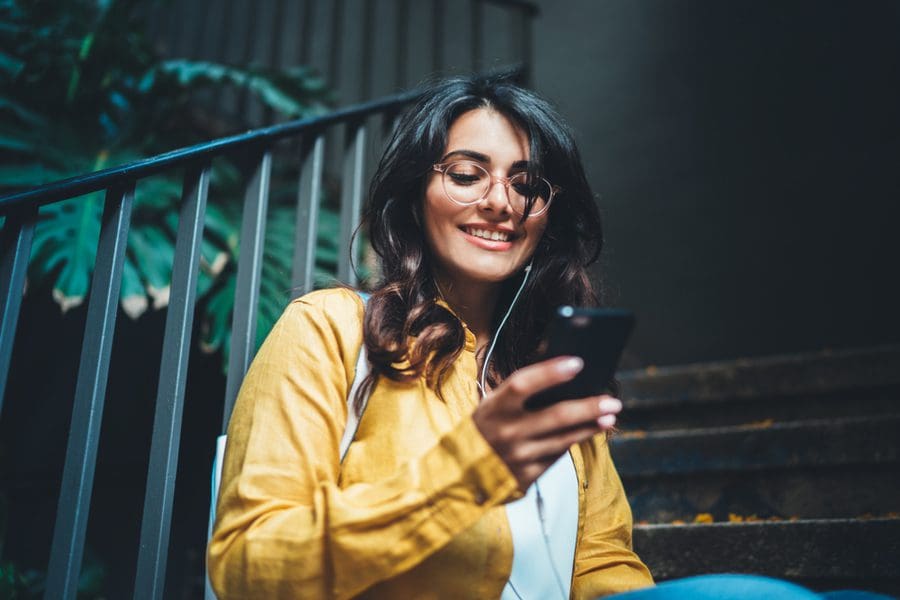Over the past decade, mental health and social media have become tumultuous bedfellows. Studies have linked increased time on social media to higher risk of depression and anxiety in people predisposed to mood disorders. There’s also a correlation between social media use and body image issues in adults and teens with the rise of Snapchat dysmorphia. With Netflix’s new exposé documentary, The Social Dilemma, shedding light on the addictive nature of our online lives, it’s clear that we need to be taking steps to self-regulate how we spend our time online.
We’re not saying anyone needs to give up social media altogether—it’s not necessarily a bad thing! It’s how we connect with our friends, get insight into our favorite celeb’s lives, and find inspiring new artists, designers, writers and so much more. For every ounce of FOMO we might get while scrolling on Instagram, we also feel inspired by the messages we see and content we share. Bottom line, we’ve got to take the good with the bad, and since social media isn’t going anywhere anytime soon, we might as well learn how to make the most of it.
Smash that Unfollow Button
If you don’t like someone, or if their content tends to make you feel worse about your own life, then unfollow. Don’t just take it from me. Listen to Naomi Shimada, co-author of Mixed Feelings, which is all about critically analyzing how we collectively spend our time on social media. It can affect how we think, feel, and relate to ourselves. One of Shimada’s tips for cultivating a better experience on social media is “actively deciding not to compare your body to the backdrop of anyone else’s so-called perfect-looking body.” She admits that this “is a conscious practice that, of course, isn’t easy.” Shimada’s advice for social media success: “unfollowing or muting people that make you feel ashamed about yourself and looking instead to the world around you and the people that make you feel joy.”
Put Your Phone Down in the Morning
New York Times bestseller and feminist icon Florence Given published her book Women Don’t Owe You Pretty earlier this year, in which she encourages us to take our time and wellbeing back from our phones and “stop scrolling in the mornings.” This advice aims to encourage her readers to stop comparing themselves to the highlights people post online right as they wake up. This approach toward social media is also aligned with research conducted by Simon Folkard, who found that many of us are at our most productive, ambitious, and optimistic between 8:00 am and 11:00 am. Scrolling in the morning takes your proactive mind and puts it into a reactive, defensive state. Instead, make a choice that will nurture your mind’s natural tendency toward productivity with stretching, cooking, or journaling.
Use Your Phone’s Settings to Your Advantage
Experts in mental health and wellness overwhelmingly advise social media users to turn off notifications and set limits on screen time dedicated to scrolling. This type of social media regulation has been linked with positive relationships with social media. According to one study at Harvard University, people who implement mindfulness into their social media use are more likely to receive the benefits of being on the apps, like social connection and positive mental health. In practice, this looks like setting scrolling time limits or only logging on at dedicated points in the day instead of endlessly checking your phone.
Let us know what works for you in the comments below.






